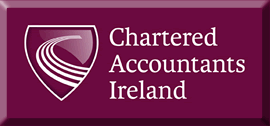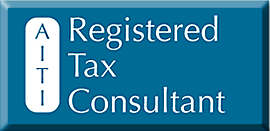Work with the Tax-man to help with your late tax payments.
An Article that appeared in the Irish Independent, June 2012, advises Individuals and Small Business Owner to work with Revenue. The owners of small businesses and personal taxpayers, striving to survive, should approach the Revenue Commissioners when the cash flow is not there to pay their taxes as they fall due. However, this is the reality that is facing many small and medium enterprises on a daily basis.On top of concerns about maintaining sales and getting paid by customers, an additional worry they most certainly do not want is owing money to Revenue and not being able to pay it.
The Revenue has put in place a structure called a Phased Payment Arrangement (‘PPA’) to support and facilitate businesses and taxpayers to comply with their tax return filing and tax payment obligations. In return, Revenue expects businesses and taxpayers to organise their financial affairs to ensure they meet the agreed payments, as they fall due.In order to qualify for this PPA, there are certain elements to be considered.Early Engagement when it comes to dealing with outstanding taxes, sticking one’s head in the sand only make matters worse.When tax is due and remains unpaid, the liability will increase over time through the application of penalties and interest on the overdue amount. Time most certainly does not heal the wound in this case.When you first realise that you or your business may not be in a position to pay a forthcoming tax liability, the importance of contacting your local Revenue district cannot be stressed enough.The extent of the room that Revenue personnel have for manoeuvre is significantly influenced, in the first instance, by the level and timeliness of meaningful engagement by the taxpayer.
Business ViabilityThe Revenue will examine the business on a case-by-case basis, and they will be reasonable in their approach and in dealing with the PPA application.In the last number of years, some financially viable businesses and individual taxpayers have experienced particular difficulties in meeting their tax payment obligations. This has been due to, for example:? A tightening of credit and overdraft facilities, or? Cash-flow problems arising from extended and ongoing late payment by their debtors, or? Exceptional bad debt(s) incurred.
Revenue consider the impact of the above and determine if the business is economically viable and whether there is the capacity to meet future tax obligations.The commitment of the taxpayer to future payments is also a definite factor to be considered, something that early engagement shows.In trying to qualify for the PPA, another key factor, which will be taken into account, is the previous compliance record of the business or taxpayer.
In every case
1. Completion and submission of the Phased Payment Application (PPA1). To use the installment calculator facility which will show the interest payable on the payment arrangement plan proposed, please check this web address.
http://www.revenue.ie/en/business/running/phased-payment- arrangements.html
2. Up to date bank statements that will allow Revenue to take a view as to whether there are increasing excesses on the account and to take a view on the extent of the account swing.
3. List of all/any assets and encumbrances thereon.
4. Outline of what cost cutting measures have been implemented in the business including drawings by the owner/directors.
In some cases the following additional information at least may be required:
5. Cash flow projections for the following 6 months.
6. Up to date management accounts.
** For debts less than €6,000 contact should be made in advance with the Collector General’s Office on 1890 203070 in order to clarify whether all of the documentary requirements outlined above are necessary. Patrick O Rourke, Partner Okelly Sutton, Kildare. www.okellysutton.ie
If you enjoyed this post, please consider to leave a comment or subscribe to the feed and get future articles delivered to your feed reader.


 O'Kelly Sutton
O'Kelly Sutton
